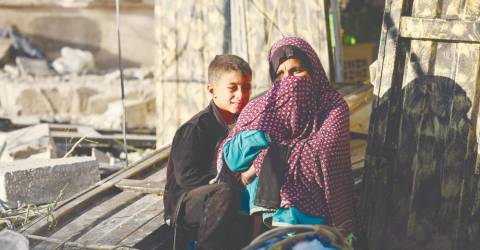Breaking Barriers: Young Activists Take the Lead in the Fight Against HIV Stigma
Gen Z individuals are stepping up and confronting those who remain silent about a crucial public health issue: HIV. Across the world – from local communities to online spaces – these young leaders are working to fill gaps in sex education and dismantle the stigma surrounding HIV/AIDS.
Facing a Crisis: Understanding the Landscape of Prevention
“The lack of inclusive sex education is a huge problem,” shared Sarah, a passionate 21-year-old activist. “Many young people are graduating without even the most basic information about HIV prevention.” Sarah isn’t alone. Many young individuals feel underserved, finding incomplete or biased information leaving them vulnerable to misinformation and infection.
Conditions remain critical in specific regions, “Teenagers are particularly at risk in countries like India, where sex education in schools is often limited,” remarked Dr. Rajesh Kumar Singh, an andrologist.
This shortage stems from various factors, perhaps societal reluctance to openly discuss sex and sexuality, interspersed with misinformation fear and prevalent discrimination against people living with HIV.
Voluntary Testing, PrEP, and a Message of Hope
Despite challenges, young activists are transforming the narrative. They are advocating for accessible testing and promoting understanding of vital preventative measures like Pre-Exposure Prophylaxis (PrEP) and Post Exposure Prophylaxis (PEP), medication regimens that significantly reduce the risk of HIV transmission.
“We’re breaking down the stigma by promoting open conversations.” remarked Emily, a 19-year-old HIV advocate, “Knowing your status is the first step to protecting yourself and others.”
These young changemakers are also championing resources and online platforms that provide accurate information. “Through social media and online forums, we can reach a wider audience, challenge misconceptions, and empower young people to take control of their sexual health,” stated David, a 22-year-old passionate about online advocacy.
Looking Forward: Empowering the Generation for Change
Led by these dedicated individuals, the fight against HIV is evolving. They are using their voices, action, and digital platforms, creating a movement focused on inclusivity, education,
and empowerment.
“Allaying fears and getting people tested is crucial,” Dr. Rajesh Kumar Singh emphasized. “Early diagnosis and treatment are vital for prevention and ensuring a better quality of life for those living with HIV.”
As this generation continues their work, the future looks brighter, not only in terms of HIV prevention but also in fostering a world where everyone feels empowered to make informed choices about their sexual health and wellbeing.
What strategies are Gen Z activists using to combat the lack of comprehensive sex education?
Let’s craft that interview!
## Breaking Barriers: A Conversation with Sarah, a Young HIV Activist
**Host:** Welcome back to the show. Today, we’re diving into a critical issue: the fight against HIV stigma, and the incredible young people leading the charge. With us is Sarah, a passionate 21-year-old activist working tirelessly to break down barriers and promote education around HIV prevention. Sarah, thank you for being here.
**Sarah**: It’s my pleasure to be here. This is an issue that deeply impacts my generation, and it’s time we speak up.
**Host:** Absolutely. You mentioned that comprehensive sex education is a major hurdle. Could you elaborate on that?
**Sarah**: Of course. Many of us are graduating without even the fundamentals. It’s not just about the mechanics, it’s about understanding consent, healthy relationships, and how to protect ourselves. The lack of inclusive sex education leaves young people vulnerable to misinformation and, tragically, infection. [[1](https://www.npr.org/2021/06/26/1010604034/nprs-its-been-a-minute-a-history-of-aids-hiv-activism) ]
**Host:** It’s truly alarming. And this lack of information isn’t universal, is it?
**Sarah:** No, it’s especially critical in certain regions. Dr. Rajesh Kumar Singh, an andrologist expertise, highlighted how teenagers in countries like India are at particularly high risk due to limited sex education in schools. This issue transcends borders.
**Host:** What are some of the ways you and other Gen Z activists are tackling this challenge?
**Sarah:** We’re using every tool at our disposal – organizing workshops, creating online resources, partnering with community organizations, and yes, even leveraging social media to reach our peers. It’s about creating safe spaces for open conversations and dismantling the stigma that surrounds HIV.
**Host:** That’s powerful. It sounds like you see this as both a health crisis and a social justice issue.
**Sarah:** Absolutely. HIV stigma is deeply rooted in discrimination and misinformation. By challenging these narratives and promoting inclusivity, we can create a world where everyone feels empowered to seek testing, treatment, and support without fear or judgment.
**Host:** Sarah, your work is truly inspiring. Thank you for shining a light on this crucial issue and for being such a powerful voice for change.
**Sarah**: Thank you for having me. It’s time we all joined the conversation.



